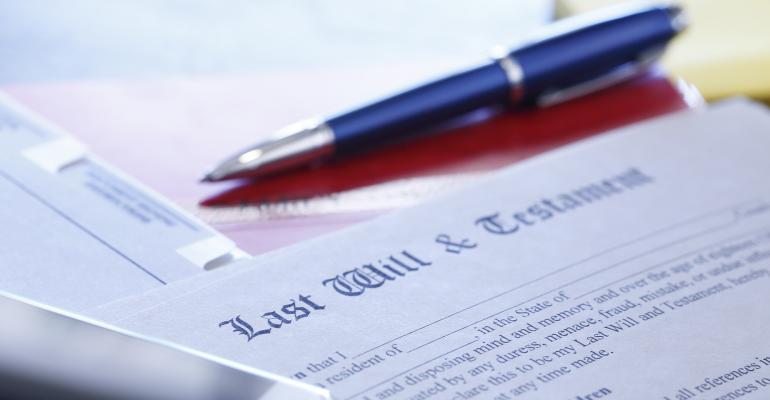The ‘Executor of the Estate’ sounds like a title for a new spellbinding novel. While the position is, perhaps, not so grand as the name would imply it's, nonetheless, extremely important. Let's look into what that means and their responsibilities.
Losing a loved one is painful. Hence, in such a situation an executor plays a crucial role in honoring the wishes of the deceased and paying respect and homage to them. Thus, the responsibilities should be carried with utmost care and consideration.
In broader terms, an executor is responsible for sorting out finances such as assets, liabilities, taxes, etc. of the deceased and distributing the assets to the heirs. An executor is not required to be legal or financial expert but takes on a fiduciary duty by maintaining highest degree of trust, impartiality, good faith, diligence and honesty. That said, depending on the complexity of the estate in question, a professional is often the best option.
For an executor to fulfill his or her duties, they need to be appointed by the court first.
Let us discuss a few of the responsibilities of an Executor. This is not a comprehensive list but a good starting point.
- Gather all the important documents, such as a Will, death certificate (multiple copies as most likely you may have to submit to various financial institutions), a short certificate, letter of testamentary, power of attorney’s, list of all assets or financial assets inventory such as bank statements, retirement plan assets statements, life insurances, mortgage/loan statements, credit card statements and brokerage accounts information;
- Notify the financial institutions, government agencies and file the Will with the local probate court, even if probate is not required;
- Gather date of death value statements from the financial institutions, consider liquidation of marketable assets such as mutual funds, ETFs and stocks to avoid market risk. Date of death value information can be essential for step-up in cost basis. Work with the deceased’s financial advisor or custodian to update this information on brokerage accounts. Make sure to take out any pending required minimum distributions;
- Get an estate’s tax ID and open an estate account that has check writing privileges. This account will be helpful to pay expenses, such as funeral costs, estate settlement costs, pending bills, loan payments, etc. Remember to create a log of all the debits and credits made from an estate account. This will protect the executor from any potential disputes from heirs;
- Publish the estate in the local newspapers, giving creditors opportunities to notify the estate. Contact all known creditors to make payments;
- If there is a real-estate, then you may need to hire a realtor to assist with potential sale;
- Determine the plan for disposition of tangible personal property. Technically, the estate will own all the assets. If any beneficiary wants a particular heirloom, their inheritance should be decreased by an equivalent value. If there are items remaining, you can also hire someone to conduct an estate sale; monies collected should be accounted for and deposited into the estate checking account;
- Send a notice to all beneficiaries regarding the estate. Ideally, it will include a preliminary accounting of the estate, any anticipated fees (including your Executor fee) and their anticipated portion. Some lawyers will also ask for the beneficiaries to sign a “release” indicating that by accepting their inheritance checks, they will not contest the estate;
- Prepare an Inheritance Tax Return (A lawyer or accountant will assist with this task) and pay tax from the estate. Prepare and pay the deceased’s tax return(s);
- Consider a partial advance distribution to the beneficiaries. You can make an early distribution of partial assets before the final estate settlement is completed;
- Determine if probate is necessary by totaling the value of property subject to probate and check the titling of the assets; and
- Distribute the final and residuary balance including tangible assets to applicable beneficiaries once all creditors & debts are paid in full.
Estates can vary in size and complexity. And an executor’s job can be challenging as well. Consulting an attorney and seeking assistance of financial professionals can help with the process. While nothing makes the grim reality of death softer or the pain of losing someone lesser, a good executor can help ease the process around it.
Komal Motwani, CFP is a senior investment analyst at Yanni & Associates Investment Advisors, LLC., a Pennsylvania-based registered investment advisor.

